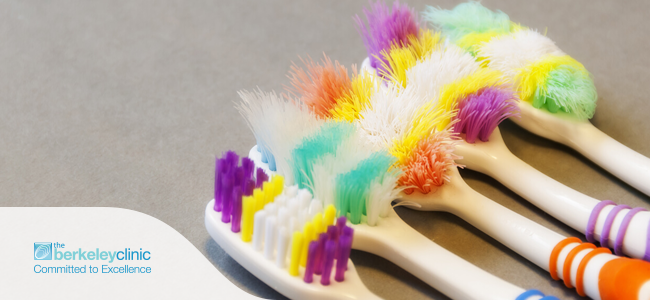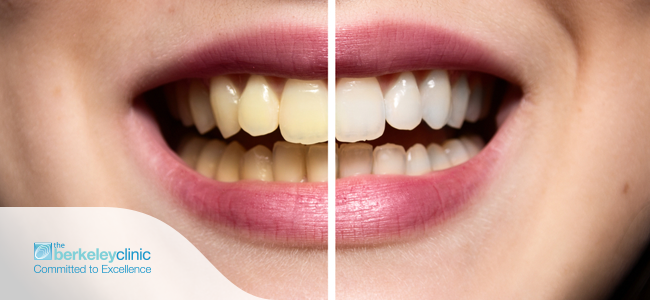The Quintessential Guide To Oral Hygiene
Over 75% of people in Britain are currently not brushing their teeth properly. This may not sound like the most important of statistics at first, but there are a number of reasons why not brushing your teeth properly can seriously damage your dental hygiene. Changing your routine is easy – all it takes is recognising the warning signs that your brushing may not be up to scratch. Sit down, realise the mistakes, and brush up on your routine with the Berkeley Clinic.
1. Irregular Brushing
Brushing your teeth twice a day is the minimum recommendation by dentists. However, think about how long your working day is. When you brush your teeth in the morning, how many hours pass by before you go to sleep? During that time, there is a lot that can be happening to your teeth. Try brushing after lunch or chew sugar-free gum to clean some of the bacteria and acids from your teeth.
2. Using The Wrong Toothbrush

If your toothbrush has hard bristles and has a larger head, it may be more likely to damage your gums or miss the smaller spaces in your mouth where brushing is needed. A smaller, softer bristled brush will keep your gums protected and you can reach the corners of your mouth a larger brush cannot. The average Brit will have at least 7 fillings in their lifetime, so using the right toothbrush for your oral hygiene routine could save you valuable money when visiting the dentist.
3. Bleeding Gums and Bad Breath
Some oral hygiene problems can be more noticeable than others. If your gums bleed when you brush, or you suffer from bad breath, you may not be brushing properly. Bad breath is a result of a build-up of bacteria on the tongue that can live quite happily for some time unless cleaned away. Use a brush to give your tongue a gentle clean to remove excess bacteria and you will see improvements in your breath.
Bad brushing technique can irritate the gums, making them inflamed and prone to bleeding. Change the way that you brush and invest in a brush with softer bristles to avoid this problem. Bleeding gums are often an early warning sign of gingivitis, so make sure that you voice your concerns with your dentists Glasgow if this continues. Ignoring these signs can lead to tooth loss, and as 74% of adults in the UK reportedly have had teeth extracted,
4. Build-Up of Plaque

You brush your teeth to remove plaque, but incorrect brushing can leave traces of it on the harder to reach surfaces of your teeth. Build-up of plaque can lead to decay and cavities in the teeth that require further dental treatment. In England, nearly half of 8-year-olds have signs of decay on their teeth, which is more than enough reason for starting to teach children – and yourself – how to brush teeth properly.
5. Flossing After Brushing
Yes, flossing your teeth is important. What most people do not know, however, is that it is far more effective for you to floss your teeth before you begin brushing. This is because flossing helps to open up the gaps between your teeth, cleaning between them to remove hard to reach food and plaque. With the spaces between teeth opened up, your toothbrush and toothpaste can reach more areas than before.
Correct your Teeth Brushing Routine

Avoiding these problems is straightforward and your dentist is more than happy to provide further advice if required. Hold your toothbrush at a 45° angle and move your brush in an up-and-down motion, being careful not to brush into your gums too much. An electric toothbrush can also be a great investment.
Ask your dentist Glasgow for more information about how to improve your teeth brushing skills, what toothpaste to use, and what solutions are available to improve your smile.
Resources:
huffingtonpost.co.uk/2012/05/16/health-brush-teeth-correctly_n_1520885.html
dentalhealth.org/news/details/874
nationalsmilemonth.org/facts-figures/
Tags: correct way to brush teeth, hints and tips, how often should you change your toothbrush. brush your teeth properly, interdental brushes, interproximal brush, proper brushing technique, proper way to brush teeth, replace your toothbrush, tepe interdental, tepe interdental brushes, tepe toothbrush

